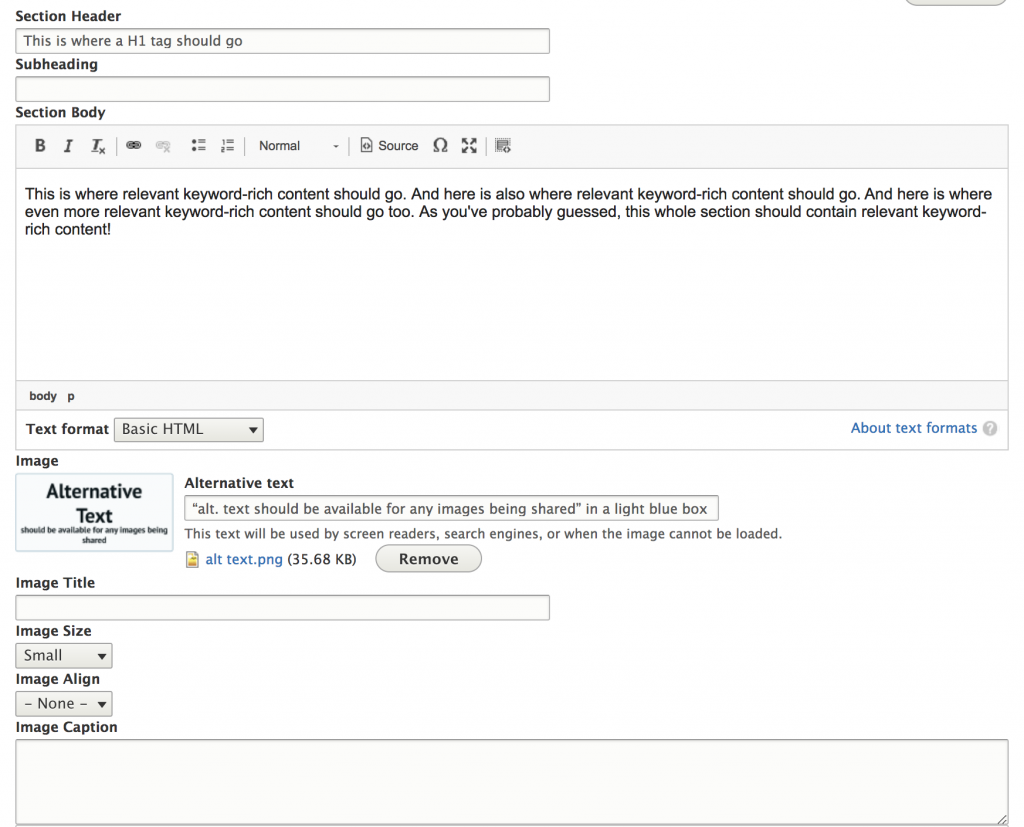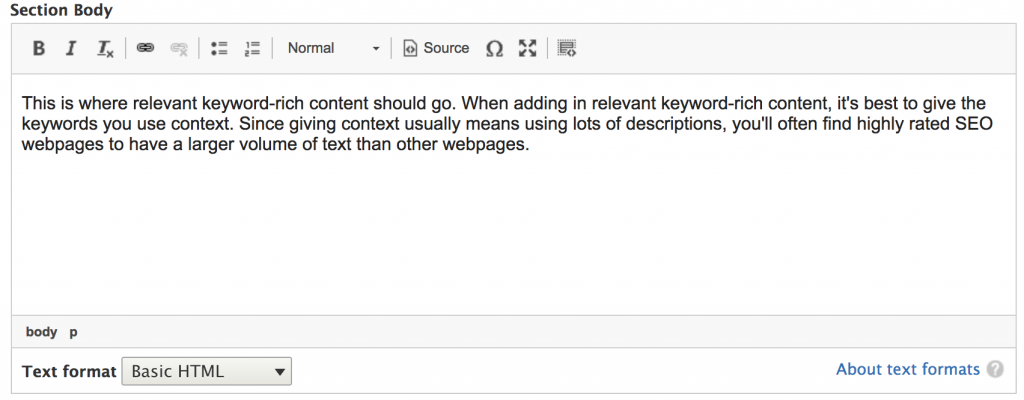I’ve spoken with countless search engine optimization (SEO) specialists, sales teams, and directors about best practices over the years, and when it comes to SEO, everyone of them has told me the same thing:
“There’s no ‘secret sauce’ for SEO perfection; the best strategy is to find who does well in your industry, and then copy the heck out of what they do that makes them successful.”
Sounds daunting, doesn’t it? It can also take an awfully long time.
Like many of you, I’m not an SEO specialist, so I’m more interested in quick wins to ramp me up for long-term strategy. Below, I’ll walk you through basic SEO and 3 quick wins that will help you take your SEO game to the next level.
SEO in 25 Words
SEO is optimizing your website so that search engines can correctly and easily identify what content is about and verify that your website is legitimate.
How Do Search Engines Know What Your Content Is About?
Search engines like Google or Bing crawl your site looking at the code, content, and context of the copy on your web pages. They then make assumptions about which topics your pages are about and what goods or services you offer. Your web content is then placed into categories accordingly.
For instance, let’s say you write a blog post about visiting Revere Beach, which is just outside of Boston. If you optimize your web page correctly, a search engine will know you’re talking about visiting Revere Beach and categorize (or “index”) pages under related topics and keywords like “beach.”
To ensure that your content is placed into the correct categories, you must make sure your content’s context is clear. For your Revere Beach post, you need to include context about the beach, or you’ll risk search engines understanding that your site is about Revere and Massachusetts but not understanding that it’s a beach in Revere, Massachusetts.Specificity is the key.
How Do Search Engines Analyze Context, and How Can I Make That a Win?
1. Get a <Header>

The header is a key component a search engine looks at when it crawls your site. Since the header will provide the search engine some context to what the web page content is, you need headers that accurately reflect your content.
For your Revere Beach post, a title like “Tips for Visiting Revere Beach, Boston, Massachusetts” identifies the specific topic you’ll cover. Your headers can then indicate what each tip is.
Additionally, if header text directly matches a keyword search, a search engine is more likely to show that web page in search results. Headers that are questions people might type into a search engine can help your post show up in the results. For the Revere Beach post, you could try “Where Can I Park at Revere Beach?” and “What Can I Do at Revere Beach?”
Take advantage of headers by:
- Making sure you have header tags. Be sure that all your headers are tagged as such! For top-level headers,use <h1></h1>, or put the header text into the appropriate box (seeabove).Usethe title of a blog piece as the header or the title of a product or service being offered. If you have headers but they’re not H1 headers, move content right on up to a H1!
- Using meaningful nouns in your headers. If your topic is about Revere Beach’s history use a title like “Revere Beach: America’s First Public Beach” to tell the search engines exactly you’re talking about.
2. Create Context with Keywords

Keywords are the words and phrases used on a web page that describe the web page content. Search engines use keywords and their context to understand what the page is about and to categorize the page into relevant categories.
Take advantage of keywords by:
- Using relevant keywords. Create congruence between keywords and content. This doesn’t mean throw in three words where one would suffice, but it does mean not skimping on your content. If you write a blog piece about Revere Beach, relevant keywords may include “Massachusetts,” “beach,”and “day trip.”
- Using keywords in context. Don’t thrown in random words that you think match with your primary keywords. If you talk about Revere Beach, you should probably also mention phrases like “sandy beaches” and“ocean water,” but don’t throw in words like “fish” or “breezy” just for the heck of it. The keywords have to be related to the point you’re making.
3. Include Alternative Text

Pictures drive traffic!
Unfortunately, while a picture might be worth a thousand words to you or me, it’s worth nothing to a search engine. Search engines can’t see images; they can only read the “alternativetext” (“alt text”), or the text that describes an image, that you enter with the image.
Alt text is visible to humans only when the image the text describes doesn’t load or your visitor is using a screen reader. But alt text is always available to search engines. When you add an image, you must then add descriptive alt text so the search engines will know the image is relevant to your content, which can help the page get higher in search engine rankings.
Take advantage of alt text by:
- Using relevant keywords in it. If your topic is “RevereBeach” and your image is of Revere Beach, alt text such as “Revere Beach shore n Massachusetts” will give stronger context text than just “beach.”
- Uploading images with meaningful file names. “Pic234567.jpg” will mean nothing to search engines. Rename image files with keyword-rich titles, such as “Revere-beach-sandy-shoreline-massachusetts.jpg.”The image will more likely to get listed and indexed.
What’s Next?
Following these 3 quick wins can help boost your SEO, but remember that SEO really is a long-haul type of win. To keep improving, invest in longer-term strategies, such as writing solid content, building strong links to other sites, and finding what your competitors do and copying it for yourself.
To learn more, checkout top SEO sites such as MOZ, SEMrush, or SpyFu,which offer solid insights and strategies for great SEO practices. They alsooffer a variety of tools you can use to jumpstart your own SEO efforts, including tracking, measuring, and analyzing SEO, with different SEO tools.

